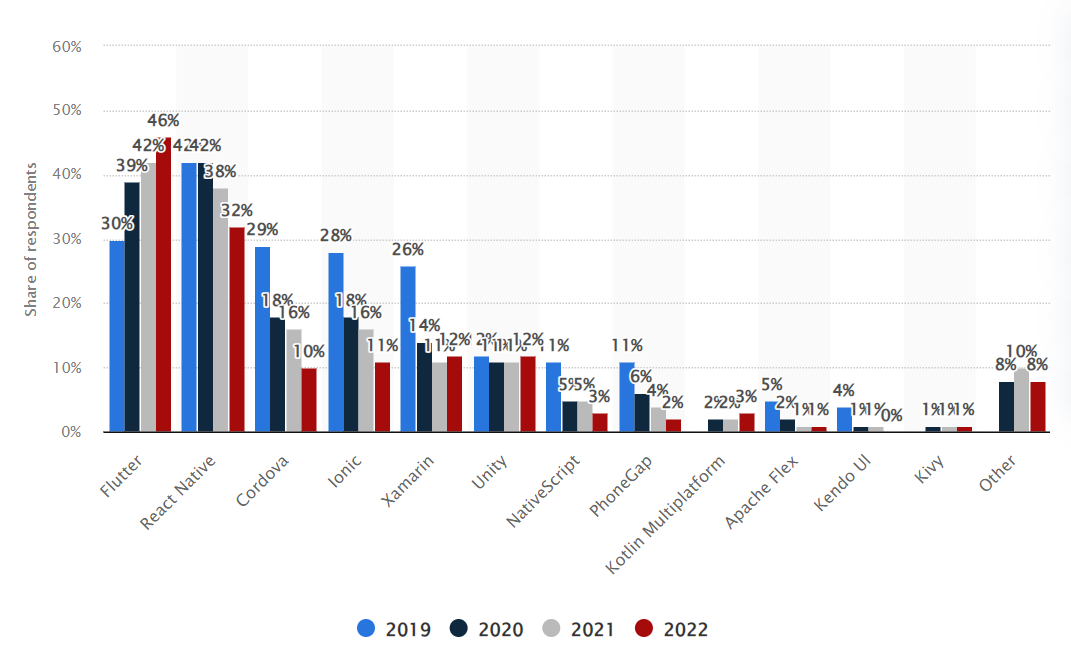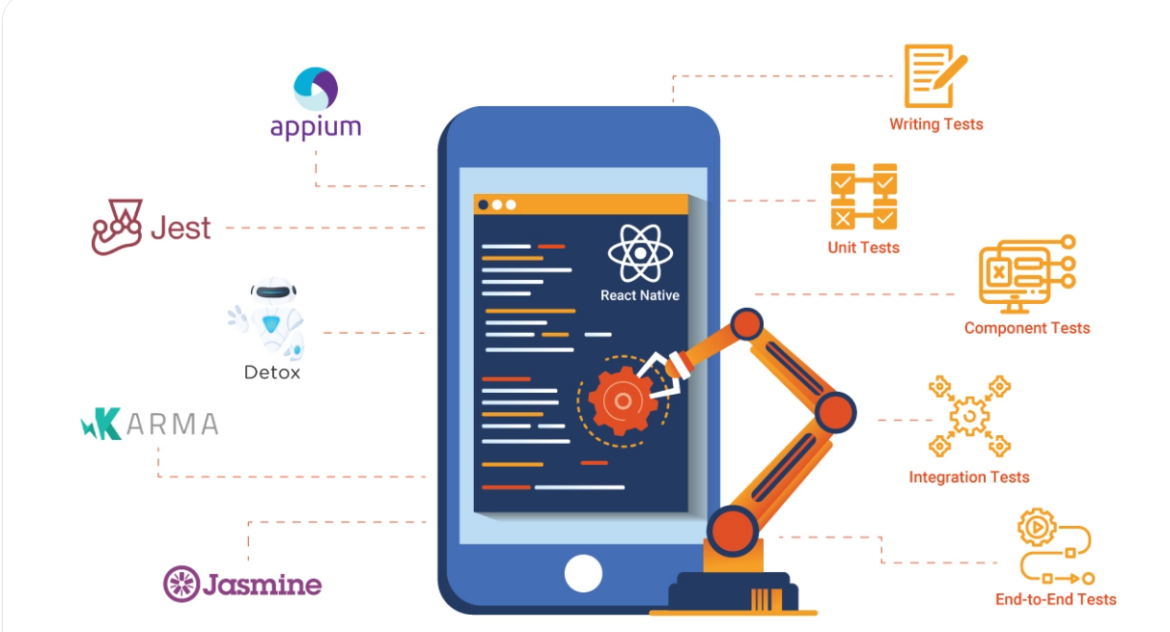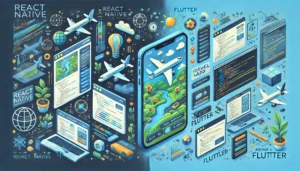Table of Contents
React Native is a go-to framework that democratised software building by allowing developers to construct cross-platform applications. The cross-platform option of RN saves developers from writing separate versions of the code for iOS and Android applications. It accelerates project timelines and significantly retains the budget for clients. Instead of hiring separate development teams, companies rely on one team, one training curve, and a unified language.
Let’s go over the key features of this framework: React Native app development services to understand what exactly propels the widespread adoption of this framework. Let’s go!
What are React Native app development services?
According to Statista, in 2021, 38% of software developers chose React Native for app development – a notably substantial percentage.

Due to its relevance, React Native shines through its ecosystem of regularly updated app development services. They are geared towards making app development more accessible and efficient, helping everyone from solo developers to large enterprises.
The services include:
Backend integration services
Backend integration services like Firebase or AWS Amplify offer seamless integration with databases, authentication systems, and other server-side functionalities. This is important for businesses, primarily SMBs, looking for complex, scalable, and secure backend infrastructures without extensive backend expertise.
Navigation solutions
React Navigation tool supports the implementation of intuitive transitions between different screens and states within an app. Such tools are essential for creating a user-friendly navigation experience that can significantly enhance user engagement retention.
State management libraries
State management solutions like Redux or MobX provide developers with efficient ways to manage and centralise the application state. This is particularly beneficial in large-scale applications where managing the state across multiple components and interactions can become cumbersome.
UI component libraries
UI component libraries such as NativeBase and React Native Elements offer ready-made sets of components that can be easily customised and integrated. Companies may use UI component libraries to swiftly prototype and test new concepts. This will help to speed up the development phase and lower startup expenses.
Live updates and code-pushing services
Life updates enhance user satisfaction by ensuring that the most current app version is always available. React native app development services like Microsoft’s CodePush allow developers to deploy mobile app updates directly to the devices of users. This is critical for businesses that need to roll out urgent fixes or features.
Testing and debugging tools
Tools like Jest for testing and Flipper for debugging provide developers with robust solutions for ensuring their applications run smoothly and are free from bugs. These tools help maintain high-quality code, which is fundamental for the reliability and performance of the app.
Analytics and monitoring services
Analytics tools like Google Analytics for Firebase provide information about user behaviour and app performance. Monitoring services like Sentry help track real-time issues, performance bottlenecks, and crashes. Both are essential in driving decisions on content strategy and app improvements.
Push notifications
React Native app development services like OneSignal enable businesses to engage with users through timely and personalised messages. This is key for maintaining user engagement and driving marketing campaigns directly through the app. For instance, the app can promote a special event or serve as a reminder to report daily activities, which will increase the number of daily active users and build a devoted user base.
Continuous integration/continuous deployment (CI/CD) tools
CI/CD systems Bitrise and GitHub Actions automate the testing and deployment of programs. They guarantee that new code modifications are easily integrated and that apps are consistently released with the most recent features and security fixes. This is especially important for apps in competitive marketplaces where making nimble changes is critical.
React Native updates in 2024
React Native app development services constantly evolve. New updates expand React Native’s capabilities and fix its flaws.
Here are several of the most important upgrades in 2024. The list is far from complete.
Support for Machine learning and AI

source: reactjsindia.com
The React Native app development services now include new libraries and APIs for integrating AI functionality and machine learning models.
By using cutting-edge features like automated customer support, personalised content, and predictive analytics, businesses improve operational efficiency.
Expanded accessibility features
The 2024 upgrades provide greater accessibility features, such as increased screen reader support and more accessible APIs. Enhancing accessibility broadens a company’s potential market by making apps usable by a broader audience, including those with impairments. This not only helps to comply with regulatory regulations but also improves the company’s reputation and customer pleasure by encouraging inclusion.
Improved native module integration
The updates to React Native app development services simplified the integration of native modules, allowing developers to add complicated native capabilities to their React Native projects. This provides improved tools for linking native code and managing dependencies, which makes it easier to combine native and JavaScript code. For example, fitness programs may now simply access and use sophisticated sensor data from mobile devices.
Refined incremental compilation
Another important update to React Native app development services concerns incremental compilation techniques. They dramatically improve build times by recompiling only the updated sections of the application. This is critical for organisations that need to quickly develop and test new features in response to customer input or market changes.
Wrapping up
React Native app development services offer a broad and continuously evolving range of options, ensuring sustainable and effective cross-platform app development. If you’re planning to build custom mobile software, we recommend opting for React Native. With this framework, you’ll cut spending and get a high-quality product, even if your timelines are tight.









